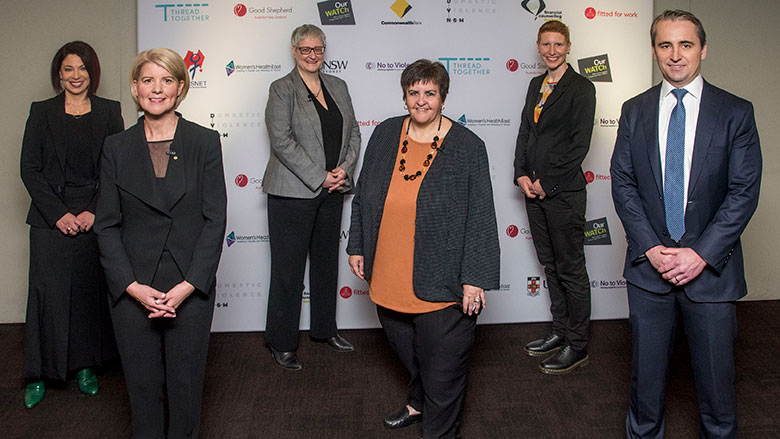To help financial institutions better address the issue, the paper outlines the key areas for consideration when analysing customer support measures, including:
- Examining ways in which victim-survivors of economic and financial abuse may benefit from tailored financial products. These may include microfinance, advance payments, savings initiatives, and asset-building programs to enable their financial inclusion and capacity.
- Establishing a specialist Domestic and Family Violence (DFV) team to assess the potential for products and procedures to be misused by perpetrators to coercively control and abuse their partner. Financial institution’s products and procedures can be manipulated by perpetrators to create financial insecurity and hardship.
- Providing training for specialist DFV teams that includes the links between economic and financial abuse and other forms of intimate partner violence, and the economic and financial abuse tactics that can occur after the end of the relationship. This should include awareness of domestic and family violence more broadly, how to implement organisational guidelines ensuring safety of customers and referral options should there be a disclosure.
- Financial institutions could provide content through youth education programs to further develop and support financial capability and financial management. Research suggests young people may adopt gendered practices of financial management in their relationships that could lead to being more susceptible to economic and financial abuse, which disadvantage young women in particular.
“The paper not only sheds light on the prevalence of the issue, it helps to define and assess the impact of economic and financial abuse and identify gaps in our knowledge so we can improve our responses going forward. It was pleasing to see that many of the areas of focus already align with the work CBA has undertaken through our Next Chapter program. As we continue to evolve and improve our services and support for people impacted by economic and financial abuse, this paper will serve as a valuable source of information,” said Ms Lewis.
In addition, the paper reveals a lack of consistency when it comes to defining financial and economic abuse. Based on a comprehensive review of academic literature, the paper found the terms are often used interchangeably, creating challenges for service and policy makers to effectively measure and deal appropriately with the distinct, but connected issues.
To provide more clarity around the definitions, the paper identified an expanded number of categories that constitute economic and financial abuse. Traditionally, economic and financial abuse has been classified into three categories; ‘economic and financial control’, ‘economic and financial exploitation’, and ‘economic sabotage’. The research identified two additional categories of ‘economic and financial manipulation’ and ‘economic and financial entanglement’.
“Our research distinguishes financial abuse as relating specifically to money and finances. Whereas economic abuse – while involving similar patterns of abuse – refers more broadly to the impact to resources, such as transportation, a place to live, employment and education more broadly. Without a clear and consistent definition, we can’t accurately measure economic and financial abuse, nor can we accurately create the right services and systems needed to support those impacted,” said Professor Breckenridge.
CBA has made the paper publicly available and has shared its findings with the Australian Banking Association, in the hope that other organisations, industry and government can also use and implement the findings.
Conducted by UNSW Sydney and funded by CBA, the research forms part of the bank’s Next Chapter program. As part of the program, the bank has brought a range of services, support, resources, and research to the market to shed light on the issue of financial abuse and make it easier for victims and survivors to achieve long-term financial independence.
Important information
If you or someone you know is experiencing domestic or family violence, call 1800RESPECT (1800 737 732) or visit www.1800RESPECT.org.au. This is a free and confidential service that is not part of Commonwealth Bank.
For counselling, advice and support call Men’s Referral Service on 1300 766 491 or ntv.org.au/get-help.
In an emergency or if you’re not feeling safe, always call 000.



